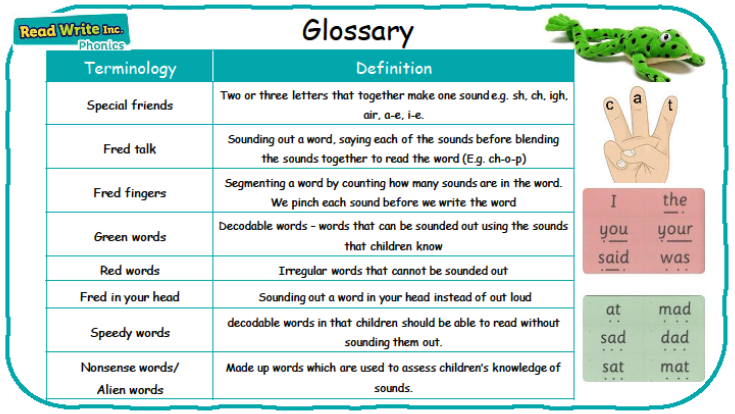INTENT

At Milton Mount Primary School, we know that every child deserves success right from the start. We know that the sooner children learn to read, the greater their life successes. This is why we put reading at the heart of what we do. We teach children to read accurately and fluently with good comprehension using the Read Write Inc. Phonics programme. We aim to foster a love of reading, giving children the very best start they can have - balancing learning to read with reading for pleasure!
Our curriculum begins in Read Write Inc, we start by:
- Teaching children the names of the pictures.
- Teaching single letter sounds moving onto diagraphs later in the year.
- Blending orally and then in words.
Children progress through the scheme based on their ability to retain the sounds and blend them in words. They move onto reading story books, revisiting the book to build on fluency skills.
Do more
The curriculum is structured so that all children participate in daily phonic lessons to build their decoding skills. The sessions have a mixture of oral rehearsal of the sound, recognising the sound and blending the sounds within words. These sessions allow for teacher modelling, paired discussion and paired practice. The children then take home a closely matched book to continue to practise the skills that they have learnt in school. Children who have progressed to the end of the phonic scheme, receive 4 weekly reading sessions designed to develop comprehension.
Know More
We teach phonics daily following a clear sequence of learning which builds upon children’s knowledge whilst giving them time to fully embed the phonics they know. For example, in Reception, the children learn single phonemes plus diagraphs. As they progress through the scheme, this knowledge is built, sounds are constantly revisited and embedded and alternative spellings/ graphemes learnt. There is a lot of time spent embedding that knowledge and applying it in their reading and writing across all subjects. All Key Stage One adults are trained to ensure consistency in the language being used.
Remember More
We are relentless with our little and often approach to this. All sessions start with a recap, and we have opportunities for short sessions throughout the day where we practice sounds that we need the children to know and recap until we are sure that they are committed to memory. Children who need more support with this are given extra sessions planned carefully to focus on their individual gaps. Parents are sent a links to videos they can watch at home of the sounds that their child is learning in the following half term to allow for extra practice at home.
Experience More
We believe that phonics is the avenue that leads to creating readers. We ensure that children are exposed to this systematic and consistent approach so that they can develop their skills as readers and continue on their reading journey. We firmly believe that once you know how to read, the opportunities are endless. When children are able to apply their phonics skills in their reading and writing, they are able to enjoy and experience the world around them.
Consider More
Our vision is to equip all children with secure phonics knowledge that enables them to read and write successfully and accurately. As the children learn more alternative spellings, we encourage them to consider which grapheme is the correct one drawing up on the knowledge that they have learnt.
IMPLEMENTATION
The systematic teaching of phonics takes high priority in Early Years and Key Stage 1. During this time, we group children by their reading progress for 45 minutes a day (20 and building to 45 minutes in Reception) and re-assess children at least every half-term so we can place them in the group where they’ll make the most progress. All our staff are phonics trained and receive regular coaching and modelling to ensure they are expert phonics teachers.
Phonics depends upon children learning to read and write sounds effortlessly, so we make it simple and engaging. The phonic knowledge is split into two parts. First, we teach children one way to read and write the 40+ sounds in the English language. We use pictures to help, for example we make ‘a’ into the shape of an apple, ‘f’ into the shape of a flower. These pictures help all children, especially slower-starters, to read the sounds easily by having a visual to pin their new learning to. Children learn to read words by sound-blending using a frog called Fred. Fred says the sounds and children help him blend the sounds to read each word We call this ‘Fred talk’. Then we teach children the different spellings of the same sounds, for example, they learn that the sound ‘ay’ is written ay, a-e and ai; the sound ‘ee’ is written ee, e and ea. We use phrases to help them remember each sound for example, ay, may I play?, a-e – make a cake.
We give children books we know they can read – without any guessing. (We read lots of other stories to them, but do not expect them to read these yet.) Before they read the story, they sound out the names of characters and new words, practise reading any of the ‘tricky red’ words, and tell them a thought-provoking introduction to get them excited about the story. Then, over four days, children read the story four times: first to focus on reading the words carefully; then to help them read the story fluently; and finally, we talk about the story together, for example, how the characters might be feeling and why. On a Friday the children bring home a book bag book that is very closely matched to the book they have read that week at school. By the time children bring this book home, they should be able to read it confidently with expression.
We make sure every child can read the last set of phonic stories before they progress to the Read Write Inc Comprehension programme where they will develop their ability to demonstrate their understanding about what they have read.
Children who need extra support to keep up with reading receive daily tutoring sessions. Children are regularly assessed to ensure tutoring sessions are purposeful and target phonics gaps.
IMPACT
Good phonics teaching will make sure that all children learn to read. As children learn to make spelling choices and understand rules and patterns as they progress through the scheme, their reading and writing becomes more and more fluent. This leads to our aim of children seeing themselves as readers and writers, and being able to spend more time thinking about the semantics and the content of what they are reading or writing instead of the decoding and segmenting of words. Once this happens they can truly become readers!
HOMEWORK
You will know what group your child is in for phonics based on the colour book they bring home OR the slip of paper that will tell you (if they are not bringing a colour book home-Set 1 a/b/c, Ditty, and Comprehension).
The files below contain information about what your child will be learning in their group as well as QR codes with links to videos to practise the sounds your child needs to learn to move into the next group.
- Set 1 C Reception
- Ditty Reception
- Ditty Year 1
- Red Reception
- Red Year 1
- Green Reception
- Green Year 1
- Purple Reception
- Purple Year 1
- Pink Reception
- Pink Year 1
- Pink Year 2
- Orange Reception
- Orange Year 1
- Orange Year 2
- Yellow Year 1
- Yellow Year 2
- Blue Year 1
- Blue Year 2
- Grey Year 1
- Grey Year 2
Green Words- use this document to find extra words that you can practise reading at home with your child. Read the Set your child is currently working on, and practise reading any previously taught words speedily. This will help build fuency as they progress through the levels.
Reception Home Reading

Children become readers on the laps of their parents. It is vital you show your children how special books and stories are. Read as many books as you can with them. Make it fun! Do funny voices for the characters, build suspense, talk about the meaning of new words, use newly learnt vocabulary in conversation, say how the characters may be feeling, become immersed in different worlds and just enjoy these special moments together.
Please share a story with your child each day to develop their love for reading. Children will choose and bring home a story to share each week from a selection of picture books. These are for you to read to/with your child.
Children in Reception begin their reading journey learning the initial sounds, then blending these sounds to read words. Children begin learning sounds from the ‘set 1 sounds’ book that they will bring home. As they learn to blend, they will start bringing home sound blending books which contain single words. As their confidence grows, they progress to reading short captions and then begin to read words in storybooks. Please put time aside to read these with your child so they can practise their reading skills. This will really support their progress.
Year 1 and 2 Home Reading
Children in years 1 and 2 who access the RWI programme will bring home two stories each week. The first story is their Book Bag Book which contains the sounds children have learnt at school, so they will be able to read this decodable book to you! The second book is a story to share, and this should be read by an adult as it contains ambitious vocabulary children can’t read for themselves.
Each half term you will receive information about the sounds your child will be practising reading at school. You will also receive QR codes that will take you to videos that your child can watch at home to embed their learning at school.
Useful links -
Ruth Miskin Parents’ Page: FAQ’S, videos, handwriting
